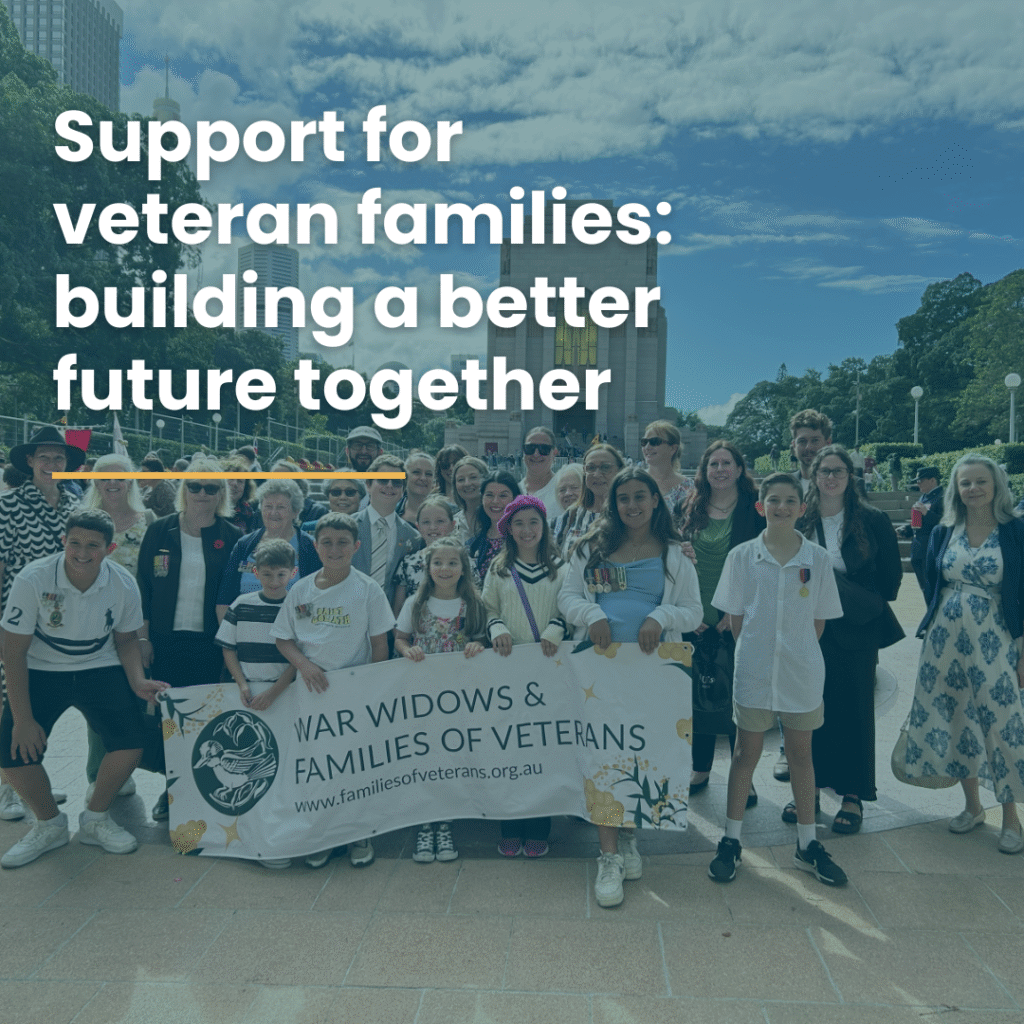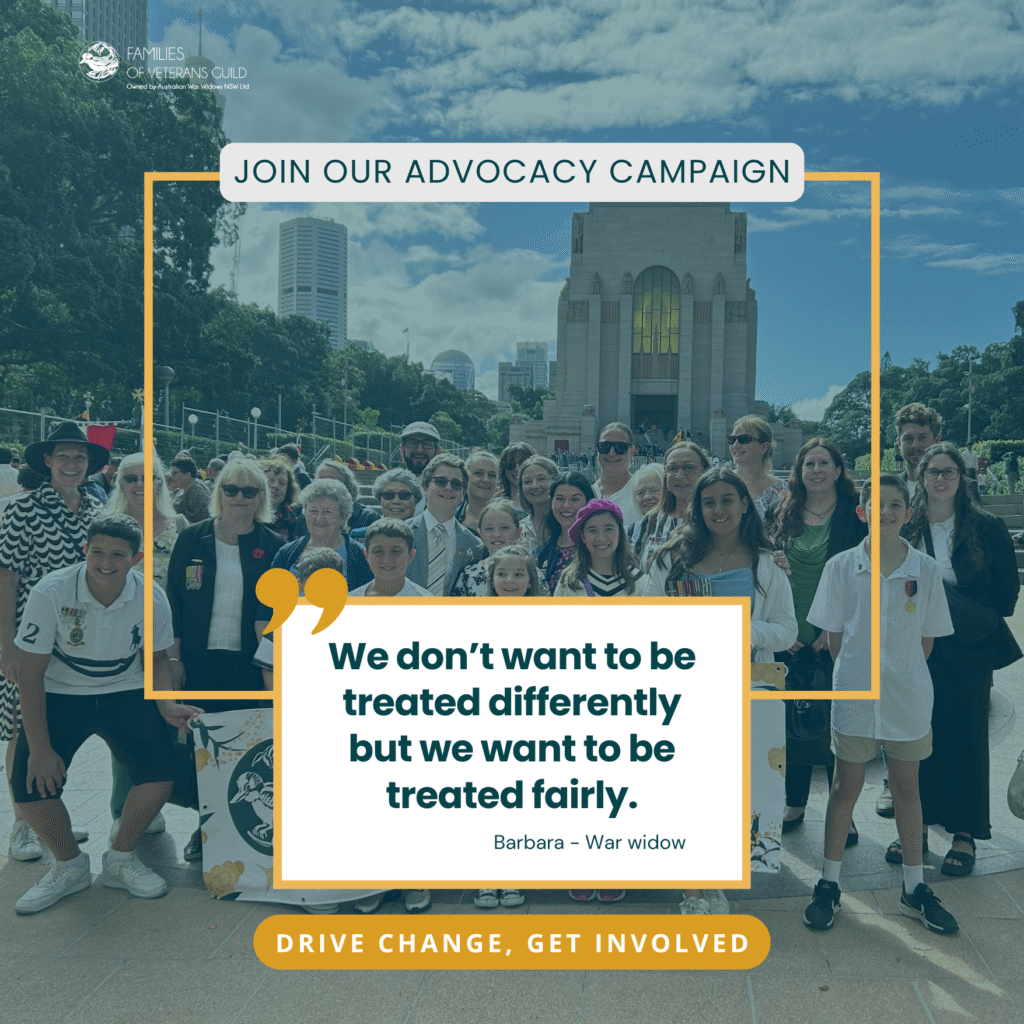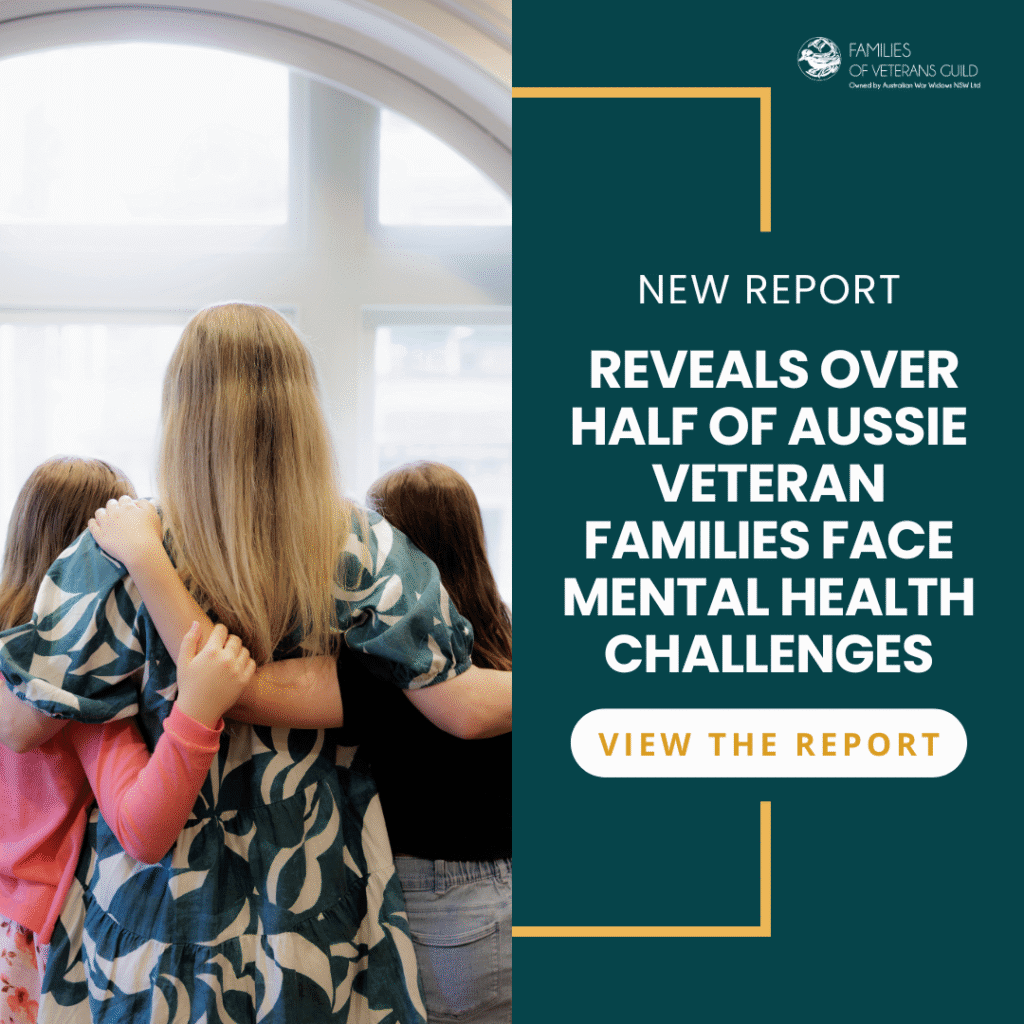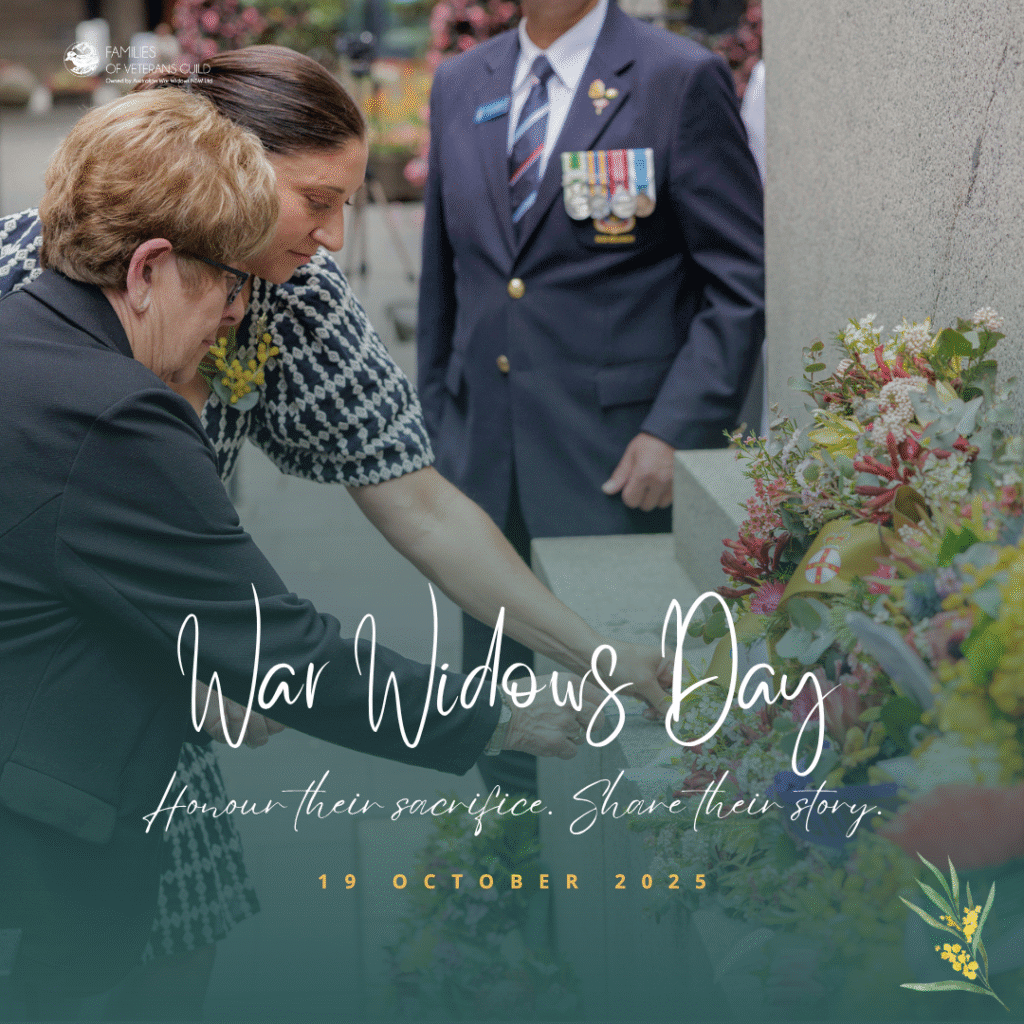It is hard to know where to start when it comes to advocating on the unmet needs of families. Advocating for the unmet needs of veteran families is both urgent and complex. The current model of care, developed over a century ago in the aftermath of the World Wars, rests on outdated assumptions. Chief among them is the belief that families only require support after a veteran passes away due to their service.
We know that is simply not true.
This model fails to reflect the lived realities of today’s veteran families, including war widows, who often face significant challenges long before bereavement.
We know this because families and war widows have been telling us this for decades, they have been telling Government departments, Ministers, Royal Commissions, researchers and the media that this simply isn’t true.
The message is clear: the current system does not meet their needs. With widespread reform underway across the veteran support sector, now is the time to make meaningful, lasting changes—both strategically and practically.
Enshrining support in legislation: making families visible
At a strategic level, it is critical that the needs of veteran families, including war widows, are formally recognized in all legislation governing veteran support. Currently, families are not included in the Defence and Veterans Acts, including the most recent version. Without a legal obligation to support families, their significance can only be acknowledged in sentiment rather than through practical interventions that reduce the burdens of service.
With this foundation, things can start to change for families. That’s why we need to start here. By embedding family support into legislation, we lay the foundation for real change. This also ensures that the unique experiences of veteran families and war widows are not overlooked but instead are central to the evolving support system.
Practical solutions for better wellbeing
Immediate, practical reforms can significantly improve the wellbeing of veteran families and war widows. Data shows that compared to the general population:
- Veteran families are 25% more likely to experience suicidal ideation.
- Children of veterans are 9% more likely to experience childhood distress.
- Parents and partners of veterans are 14% more likely to experience psychological distress.
- Veteran families are 21% more likely to experience financial hardship.
To address these challenges, we are advocating for:
- Expanded access to mental health services for all veteran families, including war widows and children.
- Extension of non-liability white card arrangements (mental health support) to families of veterans.
- Removal of time-based barriers to the Acute Care Support Package, ensuring families and widows can access crisis support when they need it most.
These changes will help mitigate the long-term impacts of service on families and provide the safety net they deserve.
Advocacy in Action: Our Priorities for the Year Ahead
Our advocacy efforts this year are focused on four key priorities:
- Inclusion of veteran families in all relevant legislation, ensuring their needs are formally recognized.
- Extension of non-liability white card arrangements to families of veterans, including children and war widows.
- Removal of time-based restrictions on the Acute Care Support Package to allow timely crisis support.
- Raising awareness of veteran families’ needs and building a network of community champions to amplify their voices.




